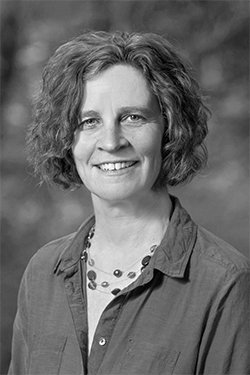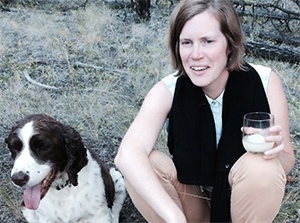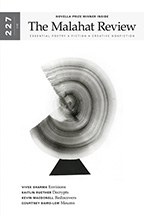The Phenomenon of Not-Knowing:
Kate Kennedy in Conversation
with Lynn Easton

Canadian editor and poet, Kate Kennedy, talks with our 2016 Constance Rooke Creative Nonfiction Contest winner, Lynn Easton, about family, repetition, and the not-knowing in her winning entry, "The Equation." Easton's memoir, which won $1,000 as chosen by contest judge Lee Maracle, will appear in the Malahat's Indigenous Perspectives issue, to be published in January 2017.
See the original announcement page for Lynn Easton's CNF Contest win.
The phenomenon of not-knowing is something I've come to think of as being almost a specialty of creative nonfiction, setting it apart somewhat from journalism and other types of nonfiction prose. Indeed, it seems to me one of the sustained themes of "The Equation" (winner of the Malahat's 2016 Creative Nonfiction Prize) is this not-knowing. You/your narrator openly acknowledges how little she truly understands of what her daughter Annie is up to in her solar experiments at home and later in her study of engineering at university. Can you speak to this?
I agree. This not-knowing is the most inviting part of creative nonfiction. It motivates me to ask questions that often lead to discoveries about myself and the world. I like the surprise. I find a kind of magic in the not-knowing.
In "The Equation," my not-knowing about science was more concrete, which was fun. I wrote my way into understanding a bit more about this foreign world that consumes my daughter and ended up learning more about the two of us as well.
In both "The Equation" and "Nine," a piece that was included in the anthology Boobs, published earlier this year, you write about family members, specifically your children. I was hoping you might say a little about what that experience is like, as a writer and as a parent. Do you come to new understandings about your family as you write, and on the other hand do you have any particular restrictions you place on yourself in terms of how you represent people close to you in your published work?
Writing about my family is both enlightening and frightening to me. I've written about my kids in newspaper columns most of their lives, but in recent essays I delve deeper into detail and emotion. My daughters are older now and I find myself questioning the process. They seem unfazed, but I now give them veto power.
At the same time, I can't seem to help myself and delight in looking at societal issues through the lens of my family. It's often my way of making sense of both.
I don't have specific restrictions on how I represent people close to me but I don't tell all either. I'm not a memoirist so my family members act more as a portal into subjects I want to explore. They are my way in. At least, this helps me rationalize using them!
Stylistically, one of my favourite aspects of "The Equation" is your use of repetition. The piece has almost a refrain in the return to the question of "science versus magic." How does this emerge for you when you're in the process of writing?
I think maybe the rhythmic repetition comes as a result of returning to the feeling of not-knowing several times throughout the piece, each time with a little more understanding.
I tend to pull in and out from a subject to try and crack whatever it is I'm not sure about. I'm told I write in a kind of spiral form that circles in on a central idea. I'm not sure that's true. I just enjoy exploring something from different angles searching for some kind of understanding I may have missed.
Knowing that you also write journalistic pieces, I'm curious to know what the appeals are for you of creative nonfiction specifically. What do you see as being its freedoms and limitations when you set out to write? Further to that, do you find that there are certain subjects or events for you that lend themselves best to being explored in creative nonfiction?
Creative nonfiction feels much freer than journalism. It's so much more possible to play with form and language in CNF. Still, I love that there's a demand for truth in creative nonfiction. When I'm forced to stick to the facts of a story—at least as I see them—I always find a more meaningful and deeper truth than if I tried to sculpt a story by making things up.
I think any topic that's multi-layered, and stirs deep emotions, is ripe for creative nonfiction. Sometimes, it feels as if the topics are limitless. Other times, I'm convinced I'll never find that kind of passion again!
I understand you're at work on a collection of essays right now. Could you tell me something about that?
Yes. I have about a dozen creative nonfiction essays that explore gender, class and feminism and how we pass down our fears and strengths around these issues through generations.
I was raised by a couple of poor East Vancouver kids in the jungle of the new suburbs where I often didn't play by the gender stereotypes of the time. In the essays, I explore that upbringing, along with my experience raising daughters in our highly charged post-feminist world—from pink Lego to rape culture.
I wrote these essays in workshops at the SFU Writer's Studio with the encouragement of JJ Lee and Wayde Compton.

Kate Kennedy
* * * * * * * *









